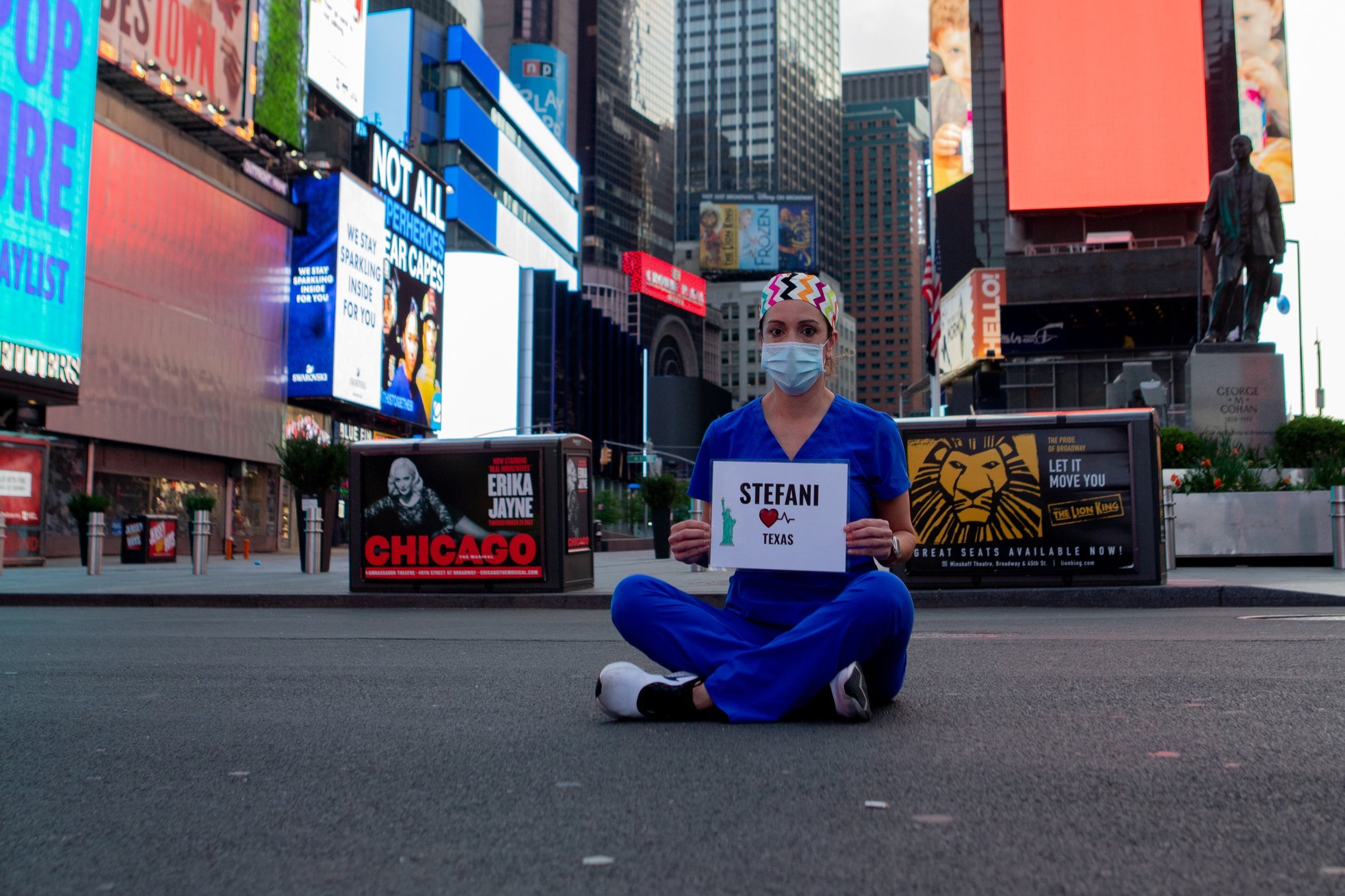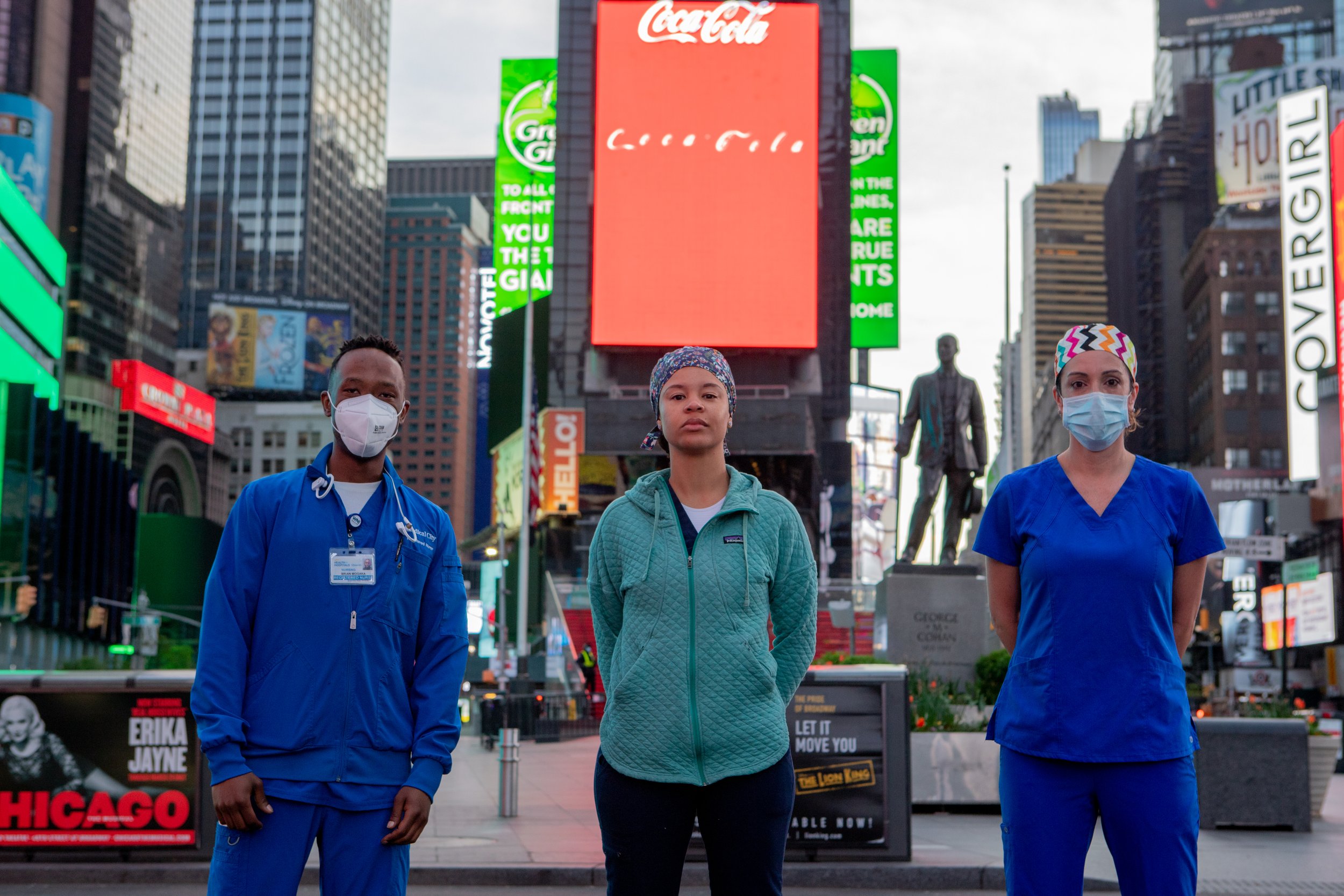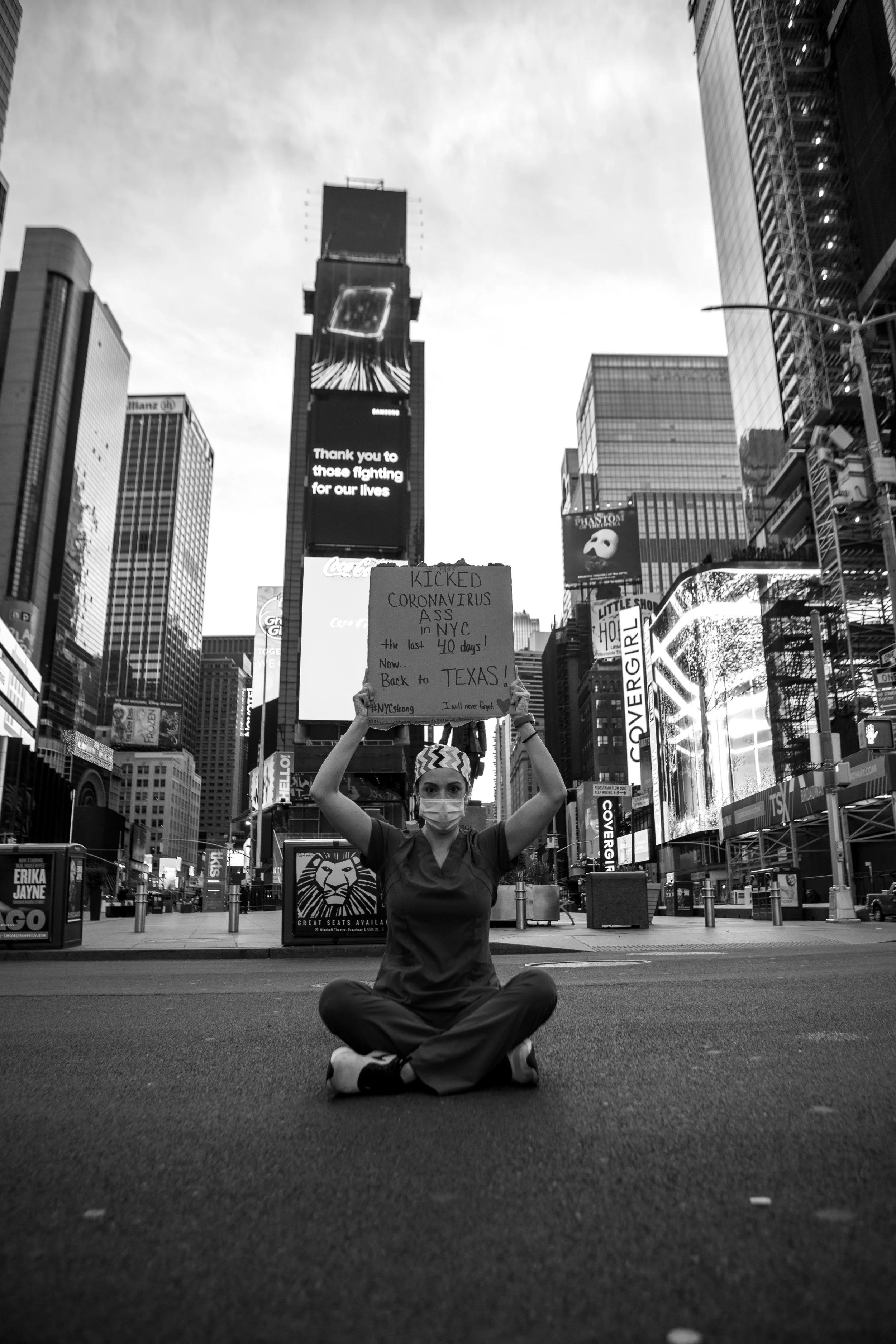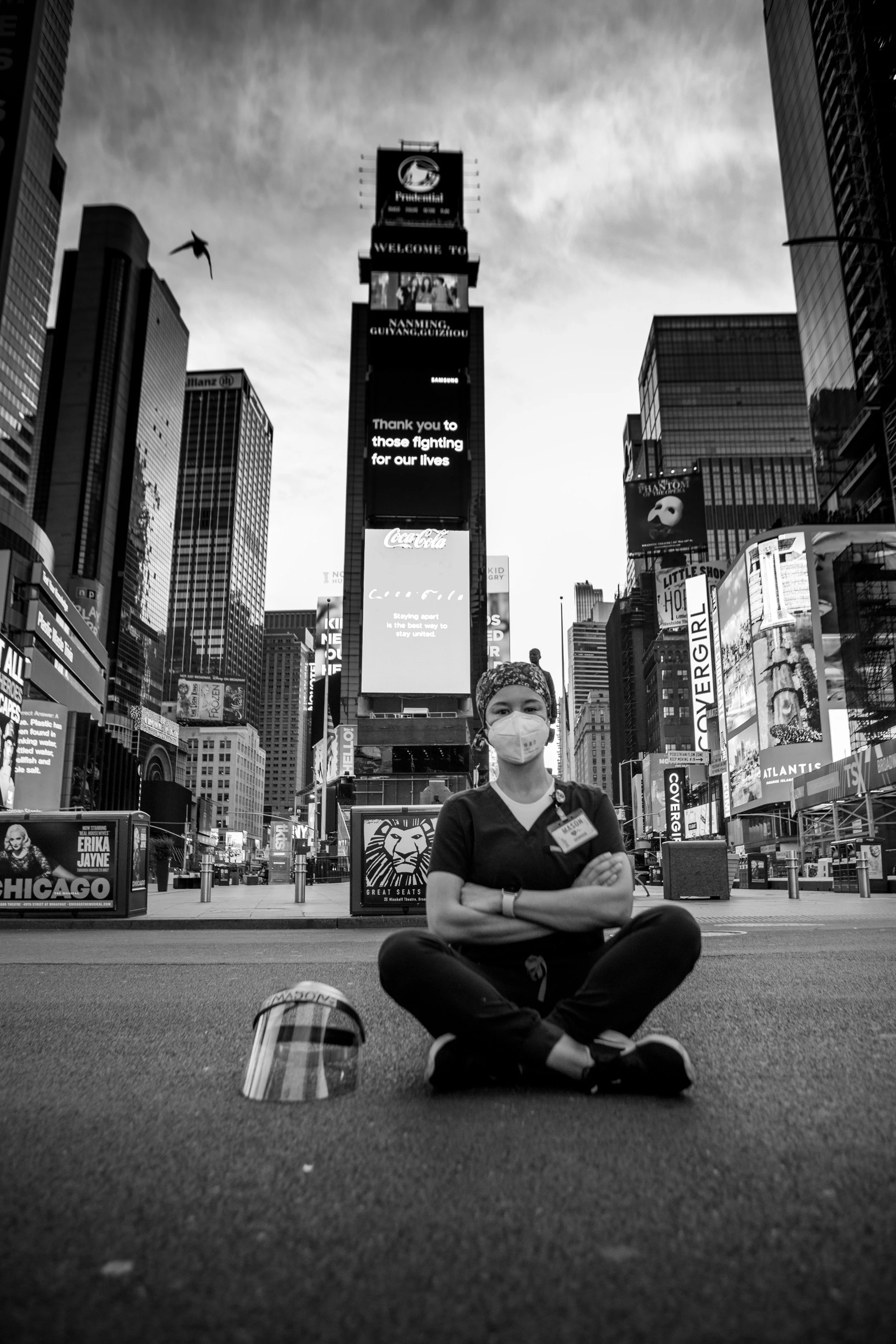
Interview With A Front-Line Hero
Interview With Stefani Bohmfalk
Interviewer Imani C. McCray
NYC 2020 COVID-19 Lockown
Uncertain of how to handle a world pandemic, many countries around the world enforced lockdowns to try to slow the spread of the disease. For many countries, this involved closing schools, canceling public events, closing borders, and encouraging people to work from home. The streets became ghost towns and the hospital’s war zones. Front-line nurses traveled any distance to aid where most needed—in the summer of 2020, this was New York City where refrigerated trucks served as make-shift morgues.
Q: Within the 40 days you have been in NYC can you take me through a day that shook your reality?
A: My first time in Queens, day 1, there were 159 patients in that ER everywhere. Two hours into my shift I left the ER and I was just crying, thinking about it now you get so emotional because there are so many people that need help and you can’t help them all. People need oxygen. You walk through and there are oxygen tanks everywhere people running out of O2. The saddest for me was having people die alone and seeing their families couldn’t be there. Trying to wake them up to unlock their phones to Face-time families before they go; I will never forget that. In my time here, I have had more deaths than in my entire nursing career. I have never put so many patients in body bags. Just being with them and hoping they had a good life and hoping their families find peace is what we all went through daily.
Q: “How do you as a front-line nurse during COVID-19 prepare mentally prepare for what you have to do?”
A: In coming to New York, there is nothing I could have done to mentally prepare for this myself. We had no idea what we would be walking into When I was stationed at Queen’s hospital it was literally like a medical war-zone and nothing could have prepared me for that.
Q: What is the most significant experience you are missing during all this?
A: Being with my family and just being able to hug them. Everyone is so afraid of me to even touch me, and I get it because I’m here on the front lines. It’s the stuff you take for granted until you can’t do it. I miss my family so much I can’t wait to go back home, see them, and hug them.
Q: When was the first time you heard of COVID-19 and what was your first reactions?
A: First time I heard about it was back in February, San Antonio was one of the few cities that got the first infected curies, ship passengers. I took care of the very first cruise ship passenger from Japan and that’s where I learned to care for these patients and anyone with potential Covid-19 symptoms. So, I knew and learned about COVID-19 a couple of months before I came to New York and that’s how I ended up here.
Q: Do you have anything you would like to say to the people helping by social distancing and staying inside?
A: I know people want to go back to their normal life and it’s hard I want to go back to my normal life, I want to go shopping. Being on the front line and seeing the people that haven’t done that and can potentially lose their life I would have never believed it until I saw it here. You have to see it to believe it and I don’t wish everyone saw what I saw but understood how bad it is.





